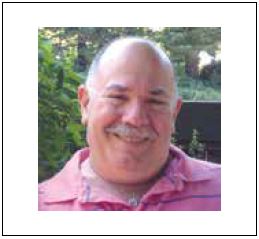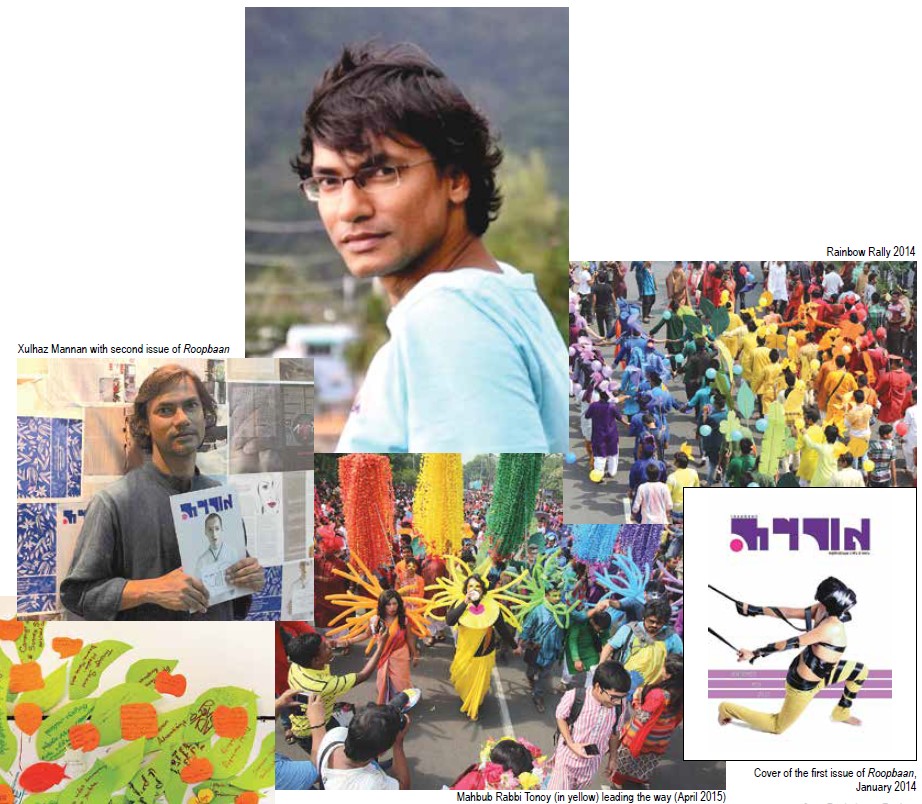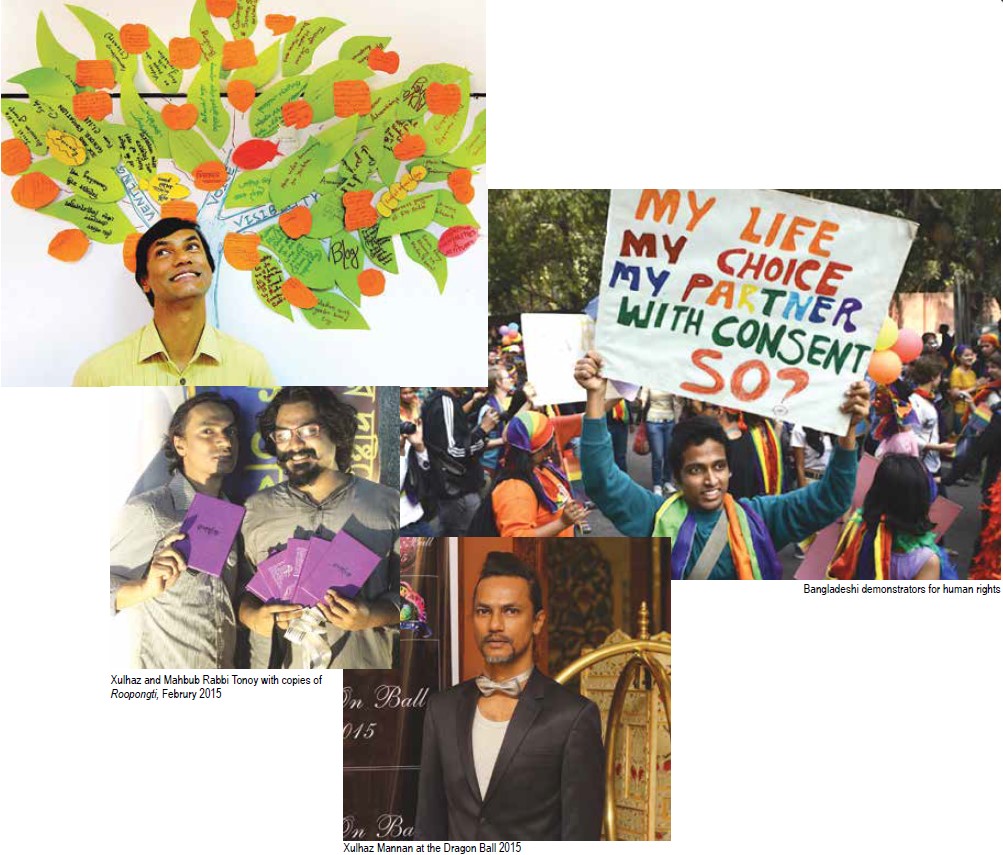
By Dr. Bill Lipsky–
Five years ago this month, on April 25, 2016, terrorists disguised as deliverymen arrived at the apartment of LGBT activist Xulhaz Mannan in Dhaka, the capital city of Bangladesh. They removed the machetes hidden within the package they carried, then in front of his mother, hacked him and his friend Mahbub Rabbi Tonoy to death. His affront to their fanatic righteousness? Being an openly gay man working to gain human rights for LGBT people in a country where legal codes, religious dogma, and social convention marginalize their existence.
Xulhaz was 39 years old, Tonoy even younger. As the journalist Raad Rahman wrote after his assassination, “Bangladesh was never a safe place for a queer person, but for someone as out as he was it was especially dangerous.” Many advised him to leave the country. He refused. “He had the option of living anywhere in the world,” his niece explained, “but he chose to live in dangerous Dhaka, standing up to what he believed in, and gave a voice to the voiceless.”
Even when fanatics threatened his life he persisted. He was not naive about the tremendous challenges he faced and the very real dangers he brought to himself, but he still believed change was possible. “In a country where the whole concept of sex and sexuality is a taboo,” he said, “we are learning to navigate our ways by highlighting ‘love’ as the center of all, as a human right that can’t be denied, hoping for better, and maybe ‘faster,’ acceptance … some day!”

Mannan envisioned “a world where the Bangladeshi LGBT community’s freedom to love is socially accepted and their human rights are guaranteed,” but he found that the legal, social, and cultural barriers to change were daunting. As Human Rights Watch stated in 2015, “Discrimination against lesbian, gay, bisexual, and transgender people is pervasive in Bangladesh.” Even Dhaka, the largest city in the country, with more than 9 million residents, does not provide them with the anonymity they find in other major urban areas.
The country’s laws against homosexuality were inherited from the British, who first imposed them in 1860 when Bangladesh was a part of colonial India. “Whoever voluntarily has carnal intercourse against the order of nature … shall be punished with imprisonment for life, or with imprisonment [at] hard labor or simple for a term which may extend to ten years, and shall also be liable to fine.” The secular government does not recognize marriage equality, civil unions, or domestic partnership between same-sex couples.
To effect change, Mannan was instrumental in helping to found Roopbaan, meaning “Fabulous and Beautiful Person,” which published Bangladesh’s first and only LGBT magazine in January 2014, a major accomplishment for the community. Although a mere 600 copies were printed for a country of some 160 million people, those involved quickly faced both criticism and threats. The second issue, with a print run of 700, appeared in August 2014. Soon after, “receiving death threats if collaborations continued,” the printers cancelled their contract. There would not be a third issue.

The same year that Roopbaan appeared, Xulhaz decided that LGBTs should participate in Dhaka’s annual celebration of the Bengali New Year, to show that they not only existed, but also that they were like anybody else. However, with same-sex intimacy illegal under the country’s secular and religious canon—as well as rejected by its long-established mores and conventions—those who joined in this first “Rainbow Rally” would not only be making a personal statement, but also a dangerous public appearance.
To keep participants feeling both welcomed and protected, Mannan thought of a solution as ingenious as it was colorful. First, he asked everyone to wear a kurta dyed a single color of the rainbow. Then he organized them to create a stunning, living rainbow flag that not celebrated “friendship, love, and diversity,” but also protested the discrimination they faced. For observers who understood, it was a wonder to behold, a bold, daring public expression of self. For others, it was simply another colorful group of celebrants.
Xulhaz organized a second Rainbow Rally in 2015. He planned a third for 2016, but on the night before the event, police told him and his friends not to participate in the New Year celebrations, fearing disruptive protests and violence against them. When some members of the LGBT community showed up anyway, four men were arrested. They were released only after police called their parents to out their sons as gay. No rally has been held since.
All of Xulhaz’s efforts for the LGBT community were in his spare time. He had been the Protocol Specialist for the U.S. Embassy in Dhaka for nine years, where he was a founding member of the Embassy’s Diversity Committee, before joining the Office of Democracy and Governance at the Mission of the U.S. Agency for International Development (USAID) in 2015; there he worked on key programs to combat trafficking in persons, address gender-based violence, and promote human rights.
During the two years following the first Rainbow Rally, Xulhaz worked both to empower and organize Dhaka’s LGBT community. He promoted HIV awareness and testing; managed to publish Roopongti, a book of Bengali LGBT poetry; and organized an LGBT film festival, youth leadership program, and even a gender-bending fashion show. In addition to hosting countless smaller community meetings and events, he made his apartment available for what he thought was a safe space for people to gather and to enjoy each other’s company. It was not.
The assault shocked civilized people everywhere, although their urbane and enlightened world could not protect them as they believed it did. On June 19, 2016, less than two months after Xulhaz and Tonoy were murdered for wanting to be themselves, a terrorist executed 50 people and wounded 53 others at Pulse, a gay nightclub in Orlando, Florida. As Clarence Darrow warned in 1925, not quite a hundred years ago, “Ignorance and fanaticism is ever busy and needs feeding.” Even here. Even now.
Bill Lipsky, Ph.D., author of “Gay and Lesbian San Francisco” (2006), is a member of the Rainbow Honor Walk board of directors.
Published on April 8, 2021
Recent Comments